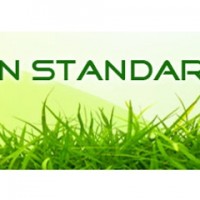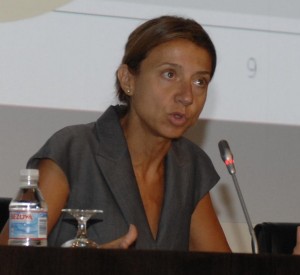Telefónica Public Policy & Telefónica España Regulatory teams
 The ITU has come up with the excellent idea of inviting all leaders of the ICT sector for one week to discuss the contribution of ICTs towards a low carbon economy.
The ITU has come up with the excellent idea of inviting all leaders of the ICT sector for one week to discuss the contribution of ICTs towards a low carbon economy.
This meeting, called the ITU Green Standards Week (5-9 September), is the most important one of the year since it will determine the sector’s position faced with the climate change summit in Durban to be held at the end of 2011. It will also provide some responses to the European Commission’s recommendation to become leaders of the economy by demonstrating the ability of technologies to promote low carbon economic growth.
EC expectations and responses by the ICT sector – Day 5, 6 and 7 of September
We are all familiar with and know the potential of the ICT sector. However, its genuine benefit cannot be made tangible if methods for measuring the impact in terms of energy and emissions do not exist.
During the first day, the Commission will evaluate the status of the recommendation so that the ICT sector becomes more efficient by the year 2015, and will unveil a new development project for pilot projects involving the use of those methods developed by the ITU. Likewise, on the first day, the status of these methods, whose development is being chaired by Group Nº 5 of the ITU Standardization group, was analysed. That day a “call for action” was made to the ICT Sector in order to meet the Commission’s expectations as soon as possible. At the end of this month, 2 methods will be approved in Seoul which will govern the quantification processes of the sector’s internal carbon footprint. Major contributions such as those of GESI and GSMA have been highlighted.
ITU expectations towards Durban 2011 – mitigation, joint reduction of GHG and adapting to climate change. Day 7, 8 and 9 of September
COP17, the world climate change summit, will take place in Durban towards the end of 2011. The sector will have to arrive at the summit with clear messages and examples of how ICTs can contribute to the overall goals involving climate change.
MITIGATION: ICTs must clearly be recognised as technologies that can enable CO2 emissions to be reduced. In order to achieve this, we must define in an orderly fashion what the solutions are, based on an appropriate methodical focus. Likewise, during the ITU, we will find out about the new technologies for managing energy and emissions by ICT users in cities under the smart cities model as well as the intensive use of green applications in devices that are increasingly more energy efficient.
JOINT REDUCTION OF GHG (Greenhouse Gases). The sector cannot remain indifferent to the fact that all economic sectors must reduce their internal carbon footprint. During the week, it was ratified that the ITU methods for quantifying the ICT sector’s carbon footprint will be approved in the short term and that all companies must calculate their emissions in a similar manner and strive to reduce their own emissions.
ADAPTATION. For the first time the sector is meeting for 2 days with the WMO (World Meteorological Organization) and the UNESCO Intergovernmental Oceanographic Commission to discuss the potential of submarine cables for generating early warning systems in oceans. Likewise, companies will share technological success cases, especially for climate management through ICTs.
Finally, as a result of these experiences and the work of the ICT sector, methods ready to be approved and an increasingly greater portfolio of ICT services involving energy efficiency and climate change have materialized.
Commissionner Nelly Kroes is also present at this event, talking about the impact of ICT on the environment, underlyning that the use of ICT can save carbon in other sectors of the economy and how ICT sector itself should become more and more “green”, as it is mentioned today in her Blog.
Silvia Guzmán, Telefónica’s Environmental and Sustainability Director. She is in charge of the Business Principles Office and the Climate Change and Energy Efficiency Office.








